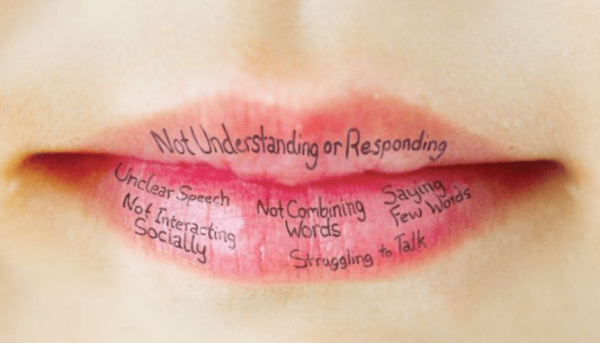Here’s to Better Hearing and Speech!
May is international Better Hearing & Speech Month! It’s a time to recognise communication disorders and highlight the role of speech pathologists in diagnosis and treatment.

Children develop at their own rate, but most children develop skills within an expected age range. For example, children typically produce first words by one year of age. A campaign by American Speech-Language-Hearing Association (ASHA) can help you Identify the Signs (read this page on early identification of speech, language and hearing disorders too).

A child who does not meet expected communication milestones will benefit from assessment to see if this may be due to a delay or disorder. As hearing is crucial to developing speech and language, the speech pathologist will ask if your child has had a hearing test. If your child is not responding to sounds or has an ear infection, see your doctor or audiologist.
Do you have concerns about your child’s communication? Here are a few signs, suggestions for what to do and who can help:
Articulation (Speech Sounds)
Only a few sounds? Speech difficult to understand?
Repeat the child’s words back to him the correct way without telling him he has said them the wrong way. For example, if your child says “Dod”, try “Dog! A big dog! That dog has soft fur.”
Genevieve Tierney, Sarah Draper, Vince Borg

Language
Only saying a few words? Trouble understanding what you say?
Comment on what you and she are doing, rather than asking her lots of questions.
Vicky Andrews, Genevieve Tierney, Sarah Draper
Literacy
Are reading and writing challenging?
Underline words in books with your finger as you read them and point to pictures as you talk about them.
Lisa Furlong

Auditory Processing
Difficulty following instructions? Not ‘getting the whole picture’ of a story?
Attract your child’s attention before giving him information or directions. Break longer instructions into simple steps.
Sarah Young, Vicky Andrews, Genevieve Tierney
Stuttering
Bumpy speech? Difficulty getting the words out?
Be patient and give your child your full attention when she speaks. Don’t finish her sentences without asking if she is happy for you to do this.
Vince Borg
Social Skills
Trouble starting and maintaining interactions? Reduced eye contact?
Follow your child’s lead and interests. Copy your child’s sounds and actions.
Lisa Furlong, Vicky Andrews, Sarah Draper, Rochelle Vizelman, Rachel Saldanha, Dr Lisa Furlong, Jocelyn Leung and Ella Mechelan.

Feeding and Drinking
Very fussy eater? Coughing when drinking?
See a speech pathologist trained in paediatric feeding. Genevieve Tierney
Hearing Impairment Rehabilitation
Hearing loss?
See a speech pathologist with experience in this area.Genevieve Tierney
Voice
Hoarse, breathy or strained voice?
Encourage your child to drink lots of water and reduce screaming and shouting.
Nicola Anglin

If you have any concerns about your child’s speech and language development, call us on 9899 5494! Seek help early, don’t wait and see! Well-meaning family and friends may tell you not to worry but you are the expert on your child.

